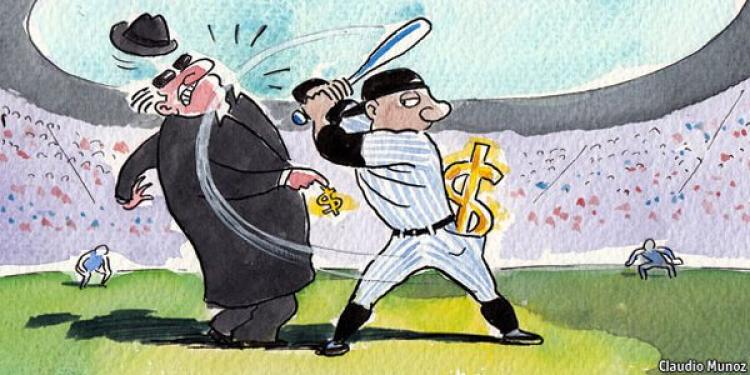140 Billion Reasons Why Government Prohibition of Betting Doesn’t Work
Posted: May 16, 2014
Updated: October 4, 2017

The International Centre for Sports Security and Paris Sorbonne University have released figures that 80% of sports betting is through illegal channels, accounting for an incredible $140 Billion a year.
That’s a huge amount of money, and with most of these illegal transactions almost untraceable, the problem is much larger than was previously thought. So what implications does this study have and can governments actually do anything about match-fixing and other issues?
The Case for Legal Change
UK gambling laws are just about to change, with new measures announced in the 2014 budget aimed at ensuring that only registered betting companies are able to accept bets from the British public. Yet this is only one step forward, with a lot of other countries having far looser laws.
$140 billion is a serious amount of money
• It is about equal to the GDP of Bangladesh
• Equal to Bill Gates and Warren Buffets worth put together
• Could buy you a fleet of 10,000 private jets with money to spare
In fact, the UK is one of the more secure places for sports betting. To start with, the country has a very developed gambling culture, with a number of traditional companies taking the majority of the country’s sports betting income.
Yet there’s more to it than that. The UK government only allows companies registered in what is termed the “white list” to operate within their territories. This has helped to cut down on the number of illegal sites available to British players.
Of course, one simple fact is that punters have access to a wide variety of legal online sportsbooks in the UK. They don’t need to go fishing around for other options as they already exist.
Tightly Controlled Markets
On the other hand, take a look at the Brazilian model. Time and again, the government has failed to legalize and regulate the gambling market in the country, making it one of the few non-Muslim countries to have no legal forms of gambling bar the lottery.
As such, gamblers in the country have no choice but to turn to illegal, unlicensed operators. While some of these companies will be above board operators taking advantage of a grey area in Brazilian law, the vast majority of wagers will be made with companies who do not have to abide by the tight controls demanded in places such as Gibraltar and Malta.
So, much of the $200 million wagered every year at Brazilian online and mobile betting sites goes to illegal black market operators, fuelling the match fixing scandals that are being uncovered with regularity in recent times.
So, it’s not only Asia that has a problem with match fixers, despite what the current narrative says. While sports authorities have been tackling the match fixers themselves, the ICSS report urges governments to get more actively involved, with Director of Integrity Chris Eaton suggesting governments have been passing the buck.
Co-operation between governments and sports authorities key
In fact, Eaton believes the focus on match fixers has been completely the wrong course of action.
“It shows that we’ve been attacking the wrong end of the problem in focusing on matchfixing and the actions of players, administrators and umpires. We must also tackle the unregulated betting market, which is so vulnerable to betting fraud. That is a government responsibility, not a sport responsibility. Governments are very adept at making match fixing a sports matter.”
Is it this passing of the buck that has caused the current problems, then?
While other locations may have massive problems with black market betting, the focus always seems to return to Asia, and the Indian market for cricket betting is one of the key areas of illegal sports betting in the world right now.
With some major corruption stories breaking out of India recently, the Indian Premier League cricket tournament has borne the brunt of criticism, and the Board of Control for Cricket in India (BCCI) has come under a lot of international criticism, leading to the suspension of President N. Srinivasan.
Yet perhaps more communication between the BCCI and the Indian government could have prevented the problems that seem rife in the cricket betting market.
No issue of conflicting interests for Eaton
The study has come under criticism, however, for the way the ICSS is funded. With the majority of income coming from the Qatari government – controversially chosen as hosts of the 2022 World Cup – Eaton has faced calls that his study may have been compromised.
He has defended this, however, saying that the Qatari government had not interfered in his neutrality and suggesting that more governments should be doing as much to combat the issues of illegal betting, match fixing and money laundering in sport.
Whatever way you look at it, though, $140 billion is a lot of money. If there is going to be real change, then a more global outlook is necessary and anti-regulation campaigners such as land-based casino magnate Sheldon Adelson need to be opposed.












